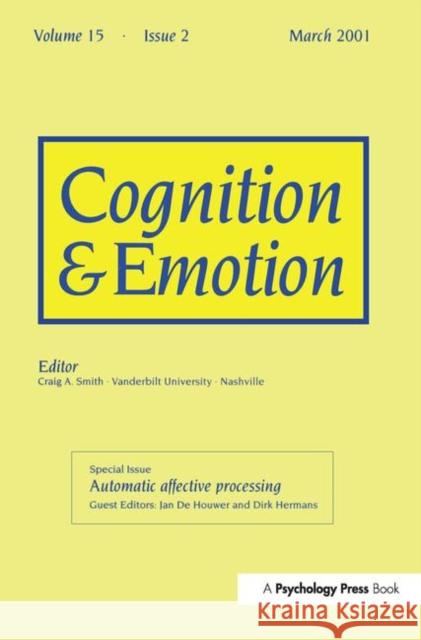Automatic Affective Processing: A Special Issue of Cognition and Emotion » książka
Automatic Affective Processing: A Special Issue of Cognition and Emotion
ISBN-13: 9780863776465 / Angielski / Miękka / 2001 / 138 str.
The concepts affect, valence and attitude are all fundamentally linked to the basic psychological dimension of good vs bad, positive vs negative, approach vs avoid. Affective processing refers to the act of determining the location of a stimulus on the affective dimension. Over the past few decades, scholars of emotion theory, social psychology, and learning psychology have put forward the hypothesis that affective processing does not depend on controlled cognitive processing. That is, they propose that organisms are able to determine whether a stimulus is good or bad without engaging in intentional, goal-directed, conscious, or capacity-demanding processing of the (evaluative attributes of the) stimulus. Rather, affective processing could occur automatically. Such automatic affective processing was believed to have an important impact on subsequent cognitive processing and behaviour. These proposals led to a multitude of research.











